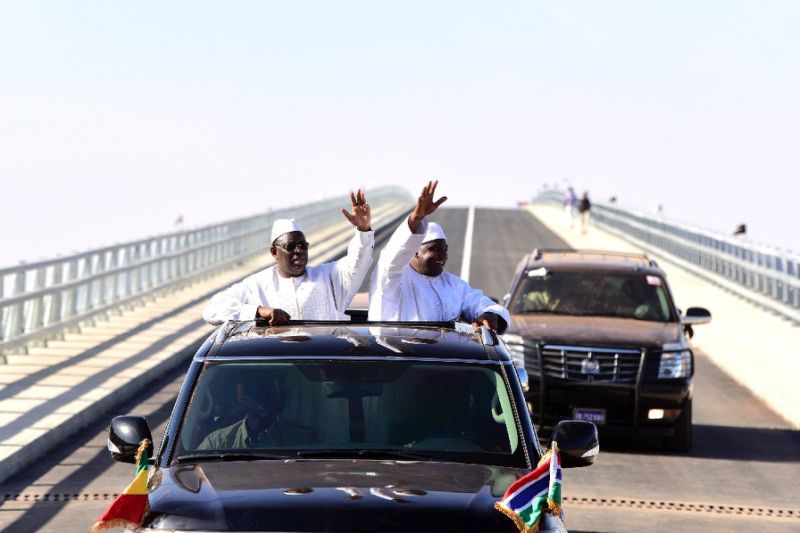By Tumbul Trawally, Seattle, USA
I was astounded by Sanna Sabally’s statement before the “Truth, Reconciliation and Reparations Commission” (TRRC) that soldiers have a right to intervene in the running of a country, when civilians failed to carry out their responsibilities. My first reaction was, where did that concept or mindset come from? Is that what the soldiers are taught during their training? I know Sanna is no longer in the army, but it is troubling (to say the least) to listen to such a statement coming from the second-highest ranking member of the 1994 Junta. If his view is the prevailing sentiment of the active duty soldiers—today—then Gambians are in a boat-load of trouble. This proves the pertinence of my previous argument that, at the bare minimum, The Gambia needs to form a Confederation with Senegal—not today—not tomorrow—but Yesterday. At some point, the ECOMIG forces will depart The Gambia. We will be sitting ducks, at the mercy of the soldiers, when that day arrives. I know that coups are no longer tolerated by ECOWAS, but the soldiers can do a lot of damage to the economy, even if the coup lasts for a day. They can raid the Central and Commercial Banks and loot their vaults, which would have a negative impact on the economy.
What did the Armed Forces Provisional Ruling Council (AFPRC) members do after overthrowing Jawara? Compensate themselves with 1 million dalasis, each. At an annual salary of D50, 000, it would take a Council member 20 years to earn a million dalasis. And–God knows—their annual salaries were less than D50, 000. Future earnings are less valuable than today’s income. One of the most important topics in finance is the superiority of today’s money (Present Value) over tomorrow’s money (Future Value). Money is all about “Present Value”! Some soldiers are motivated by today’s 1 million dalasis payout, rather than the 1 million dalasis earnings, spread over 20 years. What will deter a soldier from replicating what the AFPRC members did two decades ago? The motive is there! In essence, a significant chunk of African soldiers make the rational, though egregious, decision to participate in coups for a potential payday.
As nauseating as Sanna’s statement was—it is the reality. Dr. Ceesay, the Chairman of the TRRC, was equally astounded when Sanna trashed the Geneva Convention. Here is a man, who spent his adult working life, safeguarding the tenets of the Geneva Convention, at the United Nations, running into a brick wall of “Reality”. I hate to say this: but Sanna was right about the relevancy of the Geneva Convention, especially, to African soldiers. Samuel Doe’s soldiers dragged former Liberian president Tolbert’s son from the French Embassy and murdered him, without trial. One would think that the grounds of a foreign Embassy are inviolable, and that the accused are entitled to a free and fair trial. Not in this case! It is similar to the summary execution of Basiru Barrow and Lieutenant Faal, by Sanna and his cohorts, after the November 1994 failed coup attempt. It is heart wrenching to listen to Sanna’s testimony and hear his disregard for human life and dignity.
The only country that can defend our nascent democracy—is Senegal. I have mentioned this in my previous postings and will mention it here—Again: No two African countries are as similar as The Gambia and Senegal. We share the same languages, religions, food, culture, traditions. The only difference between us: our Colonizers. A vast majority of Gambians have relatives in Senegal, including me. On a less serious note, I always held the belief that my maternal ancestral home of Baria is located in the Kaolack region of Senegal; however, my cousin corrected me and said Baria is in the Fatick region, Department of Foundiougne, and Arrondissement of Toubacouta. Thanks, cousin, for that rectification and the Civics lesson!
On a more serious note, personally, I do not think The Gambia needs an army, but if we are to maintain one, it should be a professional army, just like Senegal’s, where soldiers are trained to become doctors, engineers, accountants, lawyers, architects, and a host of many other professions. With that approach, soldiers will come to realize that there is a life, after serving in the military. The duty of an army is to protect a country from an external aggressor, a role The Gambia can outsource to Senegal; the police are responsible for maintaining internal order. This message should be part of the “Mission Statement” of the Security departments. Usurpation of power should be eliminated from the military vocabulary.
To further underscore our close relationship with Senegal, if you lived in the North Bank Region of The Gambia in the late 1800s, you lived under the rule of Maba Jahou Bah or his son, Sait Matty Bah, who ruled from the town of Nioro, in modern day Senegal. If you lived in the Lower River Region of the Gambia in the late 1800s, you lived under the rule of Foday Kaba Dumbuya, who ruled from Medina, a town in modern day southern Senegal (Casamance). If you lived in southern Senegal (Casamance) in the late 1800s, chances are you lived under the rule of Musa Molloh, who ruled from Kesser Kunda, Central River Region, in modern day Gambia; or Foday Sillah, who ruled from Gunjur, in the West Coast Region of modern-day Gambia. The Gambia and Senegal’s similarities are countless; their boundary is an artifact of the French and the British, demarcated in 1891.

